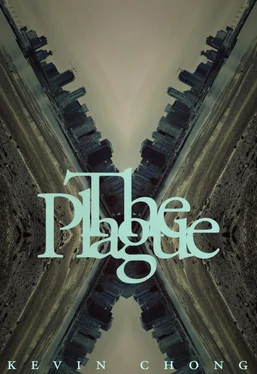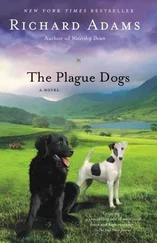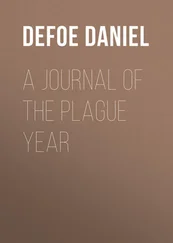“Your tone is scaring me.”
“I’m sorry,” he said. “But sit down.”
She eased into the chair and was surprised by how comfortable it felt, like a broken-in pair of slippers. From one of the cabinets he brought out two glasses and a bottle. Graham held out one glass with two fingers’ worth of scotch in front of her. “You don’t need to accept this project,” he said, settling down in the other club chair with his drink. “But you had a gut reaction to this place. It wasn’t the one I wanted. And I want you to explain it to me. Just tell me why you hate it and you can keep the money I gave you.”
She took the glass. The whisky tasted like the ocean, a shoeshine, and a campfire. “I don’t know where to begin,” she said. “I mean, I was expecting something gaudier.”
“I wasn’t raised to show off.”
“Well, at least that would be something. This is what you come up with when you have no vision of life after brain function ceases.”
He drew to the edge of his chair. “Now we’re getting somewhere.”
“What is it that you want to endure for ages?” she asked him.
“That’s easy. Some traces of my life.”
“What about the world that we live in?”
“What about the cube itself? It’s a marvel of contemporary engineering,” he said. “The finished product will feature an introductory hologram.”
“This will be so five years ago in two years. What else?”
“That’s your job,” he told her. “I don’t need to haggle. I respect you. Name your price.”
She finished her scotch. Then she handed the glass to him and stood up. “There are some things you can’t buy. One of them is a vision.” She liked how that sounded even though she knew it was false.
He followed her as she hurried down the corridor. Each time he tried to catch up with her, she sped up. She was galloping by the time she reached the front door. The driver was playing with his phone. She waved him off.
“I believe in tons of shit,” Graham called after her. “Saving the whales. Free market social solutions. Bitch. The benefits of learning a second language. But what if you don’t think you’ll be anything after you die—then what do you do?” Tso didn’t look back.
Twenty minutes later, with the nearest bus stop still two kilometres away, she regretted the bravado of turning down the driver. She took a wrong turn that led her farther afield to a beach that had been empty since a metric ton of rats, skunks, and squirrels had died along the jogging path. Gulls circled above her, dismayed by the absence of garbage. The dog walkers, braving infectious disease to allow their pets time to poop and play, broke the desolation. She wished she had that kind of love, everyday and unassailable, for anyone.
She thought she could see her hotel across from English Bay, two empty bus rides away, and took pleasure in knowing where to look. She persuaded herself that she was no longer a tourist in Vancouver; she was a founding citizen of this quarantined city. She ignored her sore feet and resolved to walk home, which took the whole afternoon. Back at the hotel, she showered and sat on the edge of her bed in a hotel bathrobe. She felt tired but unable to sit still. She listened to the air conditioner make a gurgling sound in the room next to hers. Someone was whistling down the hallway while jangling spare change in his pocket. She considered calling her stalker ex. His contact info was on her phone, and her trembling thumb hovered over his name. Back away slowly. She put on her sweatpants and headed downstairs where she found Judge Oishi with his daughter, Rose. He welcomed her into the empty seat across from him.
“You made it just before I hit the panic button,” Oishi told her.
“I’m having a french fries,” Rose announced. Thankfully, she was not the kind of child who needed to be coaxed into acknowledging the existence of an unknown adult. She was that age—three or four, Tso couldn’t tell—when a child’s speech was half-intelligible. The girl had skin the colour of a pecan, wide-set Asian eyes, and rippling curls. Tso foresaw a lifetime’s worth of conversations for her in which she would have to offer her ethnic pedigree or risk being labelled difficult.
While Rose coloured a placemat with crayons, Oishi explained that it was a professional development day at school. His estranged wife needed to work, so he’d agreed to watch Rose for the day only if she could spend the night with him. The hotel staff had set up a cot. Oishi told Tso that his estranged wife hoped he could extend his stress leave to watch Rose during the days through the quarantine. “I see her point. But there’s a backlog of cases already,” he told her. “I still have another week of this leave. What are the chances things will get better by then?”
Tso stared over his shoulder at the setting sun in a stupor. She suddenly realized she was being asked a question and apologized for not hearing it.
“Are you okay?” Oishi asked.
“I need a glass of wine,” she said eventually. “Except for that, I’m fine.”
She felt something wither inside her. She had trapped herself within this city to meet with a pompous rich dude. Her own greed had led her to these woeful circumstances. She ordered two glasses of wine. One for me, and one for me.
_________
Tso’s mind circled back to Yuko. Although Tso had returned her bag, she remembered the meeting on the day planner. Out of curiosity, she decided to keep Yuko’s appointment for her. She hoped to learn more about this woman.
She wandered further east than she’d ever gone before in the downtown core to the Annex. The outdated map she had been given at the hotel called the area by a different name. People were always excited to talk about this neighbourhood—the new art gallery and bubble tea shops, the restaurants and cocktail bars—after making all the necessary disclaimers about gentrification and displacement. To longtime residents, the reclaimed area was like having a new room in an old house.
She arrived at a white-tiled coffee shop with gleaming chrome tables and leafy plants. A woman sitting by the window with a single rose put down her phone and stood up.
“Yuko?” she asked.
Tso realized that she bore a passing resemblance to Yuko. Although their mannerisms set them far apart, if you’d only seen one picture on a screen, it would not be blatantly offensive to mistake one of them for the other.
“Gudrun?” Tso answered back.
She was tall with blonde dreadlocks and wore a short top that showed off her tanned and toned midriff. Gudrun stooped down to hug her. “You never confirmed,” she told Tso. “But I’m glad I took a chance you’d show up.”
There was a chai latte in front of Tso when she took her seat. “That’s your favourite drink—did I get that right?” Gudrun asked.
“Yes,” Tso said quietly.
Gudrun took over most of the conversation, perhaps because Yuko wasn’t a native speaker of English. She announced that she was tired of worrying about the quarantine and disease. Could they agree that those topics were off-limits? Tso nodded. Gudrun was pleased. She told Tso about her training to become a registered massage therapist. She was from Vancouver Island, where everyone hiked. She loved sushi.
Tso’s replies were quiet and clipped, and she ducked her head in an ill-informed approximation of a Japanese bow.
“I feel like I’ve done all the talking,” Gudrun said, her eyes wide and teeth flashing. “You mentioned you haven’t come out to your parents. What are they like? What are their names?”
Tso prepared a lie. Then her throat clenched. She started to cry.
“I’m sorry,” she admitted. “I’m not Yuko. I don’t know why I was pretending.”
Читать дальше












